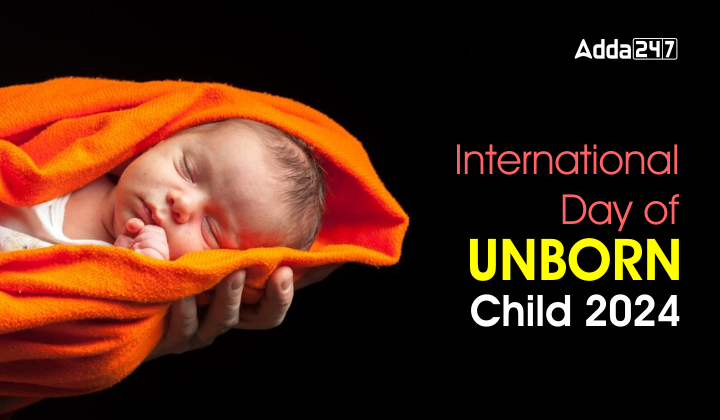Table of Contents
International Day of Unborn Child 2024
Globally, every year the International Day of the Unborn Child is observed on 25 March. The purpose of this day is to acknowledge the worth and dignity of every human life, particularly those that are still in the womb. In an effort to increase awareness about the sanctity of life from conception to natural death, the day is observed globally with a variety of events and activities. People celebrate this day in many ways. While some decide to plan prayer vigils, marches, or rallies, others decide to attend mass or other religious events. Furthermore, an abundance of entities and persons employ social media and additional channels to raise consciousness and underscore the importance of protecting the lives of fetuses.
On the other hand, commemoration of the International Day of the Unborn Child is a continuous celebration. Promoting a culture of life and protecting the rights of the most marginalized people in our society is a continuous commitment. In order to fulfill this commitment, expectant mothers must receive assistance, access to resources such as healthcare and education, and advocacy for legislation and policies that uphold the rights of unborn children.
International Day of Unborn Child 2024: Theme
“The dignity and worth of unborn children” is the topic/theme of the International Day of the Unborn Child. The theme serves as a platform to emphasize the dignity of those yet-to-be-born and to advocate for their protection and rights. Through various events and activities, this day aims to raise awareness about the profound significance of every human life, especially those in the womb. By acknowledging the value of unborn children, the day encourages dialogue, reflection, and action towards fostering a culture that respects and safeguards the lives of the most vulnerable members of society.
List of Important Day of March 2024
International Day of Unborn Child 2024: History
John Paul II, the late Pope, is linked to the International Day of the Unborn Child. Abortion as a medical treatment was opposed by the Pope John Paul II. The late Carlos Menem, the former president of Argentina, in Buenos Aires on 25 March 1999, formally declared the Feast of Mary’s Annunciation to be “The Day of the Unborn Child” in Argentina.
On an earlier meeting, Menem allegedly made a pledge to Pope John Paul II to take action on support of unborn children. A note from the Pope was read aloud during the announcement ceremony, indicating that he was apparently pleased with the news. In the correspondence, Pope John Paul II denounced “the assaults on human life” as a “serious transgression against the Creator (see Gaudium et Spes).”
International Day of Unborn Child 2024: Significance
Awareness and Advocacy: The International Day of the Unborn Child in 2024 serves as a pivotal platform for raising global awareness about the sanctity of life from conception. It provides an opportunity for individuals, organizations, and governments to advocate for the protection of unborn children’s rights and to condemn practices such as abortion.
Cultural Shift: Observing this day encourages a cultural shift towards valuing and respecting the lives of the most vulnerable members of society. By highlighting the dignity and worth of unborn children, it fosters a mindset that prioritizes their protection and well-being.
Policy Implications: The significance of the International Day of the Unborn Child extends to its influence on policy-making. It prompts governments and policymakers to consider laws and regulations that safeguard the rights of unborn children, promoting a legal framework that respects the inherent value of every human life.
Support for Pregnant Women: This day underscores the importance of providing support and resources to pregnant women, ensuring they have access to healthcare, education, and other essential services. By prioritizing maternal health and well-being, societies can create an environment that values both the mother and her unborn child.
Ethical Reflection: Observing the International Day of the Unborn Child prompts individuals to engage in ethical reflection regarding issues surrounding abortion and the rights of the unborn. It encourages dialogue and debate on moral and philosophical questions related to the beginning of life, fostering a deeper understanding of the complexities involved.





 GA Capsule for SBI Clerk Mains 2025, Dow...
GA Capsule for SBI Clerk Mains 2025, Dow...
 The Hindu Review October 2022: Download ...
The Hindu Review October 2022: Download ...
 Seating Arrangement Questions for IBPS R...
Seating Arrangement Questions for IBPS R...


